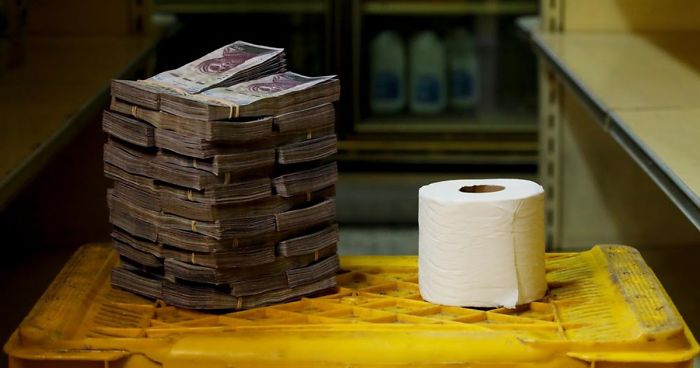
Here’s How Much Money You Need To Buy Different Everyday Items In Venezuela (11 Pics)
Imagine that you go out for a meal, and by the time you have finished eating it, its price has doubled. That is the reality of hyperinflation, the result of printing too much money for the size of the economy, making cash essentially worthless.
Crisis-stricken Venezuela is currently in the grip of hyperinflation, the worst case seen since Zimbabwe in 2007-09. By the end of the year, the inflation rate is predicted to top 1 million percent, a staggering large number which the government have attempted to curb by slashing 5 zeros off of the national currency, the Bolivar, and introducing new notes. For some time there will be a mix of notes in circulation, leading to confusing situations about the true price of items and making transactions a nightmare, particularly for poor Venezuelans who don’t have a bank account. These people have been forced to carry around huge piles of cash to buy even the most basic of household goods.
Can you imagine having to pay millions for a roll of toilet paper, that has an actual value of around $0.40 USD? To give you an idea of what this actually looks like, Venezuelan photographer Carlos Garcia Rawlins took pictures of essential items like tomatoes and nappies, together with the cash needed to purchase them. Prices shown are from the time the pictures were taken, the situation is so volatile they are likely to be very different now. The images are shocking, and vividly illustrate the sheer scale of the grave economic crisis that hyperinflation has brought to this once wealthy nation.
Scroll down below to check out the pictures for yourself, and for more information about the crisis in Venezuela, you can start with articles here, here and here. It is a complex situation that needs a deeper understanding than simplistically declaring that ‘this is what socialism brings.’ Let us know what you think in the comments below.
Crisis-stricken Venezuela is currently in the grip of hyperinflation
A 2.4 kg chicken is pictured next to 14,600,000 bolivars, its price and the equivalent of 2.22 USD
These pictures show how little the national currency, the Bolivar, is worth
A toilet paper roll next to 2,600,000 bolivars, its price and the equivalent of 0.40 USD
Those without a bank account have to carry around huge piles of cash to buy even the most basic of household goods
A kilogram of carrots next to 3,000,000 bolivars, its price and the equivalent of 0.46 USD
A package of pads is pictured next to 3,500,000 bolivars, its price and the equivalent of 0.53 USD
A package of diapers next to 8,000,000 bolivars, its price and the equivalent of 1.22 USD
The prices shown here are from the time the pictures were taken, the situation is so volatile they are likely to be very different now
A kilogram of cheese next to 7,500,000 bolivars, its price and the equivalent of 1.14 USD
A package of 1kg of rice next to 2,500,000 bolivars, its price and the equivalent of 0.38 USD
A bar of soap next to 3,500,000 bolivars, its price and the equivalent of 0.53 USD
A kilogram of meat next to 9,500,000 bolivars, its price and the equivalent of 1.45 USD
A kilogram of tomatoes next to 5,000,000 bolivars, its price and the equivalent of 0.76 USD
A package of 1kg of pasta next to 2,500,000 bolivars, its price and the equivalent of 0.38 USD
Pressure is increasing on President Maduro to find a solution, as protests begin in the streets of Caracas
Here’s what people had to say
159Kviews
Share on FacebookExplore more of these tags
This isn’t about socialism or communism, this is a humanitarian crisis. Imagine what it’s like to live in a place where the money you spend on a bar of soap is the equivalent of what you would spend two, three decades ago on an apartment or villa. It is incredibly sad and costing many peoples lives (but people rather ignore that fact and rather focus on talking political agendas).
Besides, it is an example of incompetent leadership. Yet people like Erdogan in Turkey and Trump in the US interfere with the work of their central banks. Manipulation of what is governed by basic economic laws will eventually backfire, and it is always the population paying for it.
Load More Replies...There is a documentary created on current situation in Venezuela by channel VOX, go watch it on YouTube. Its heartbreaking to see what is going on there.
I'm currently living this hell, can someone please take me out of here? here is some prices updated Aug. 21, they might vary depending the state: 2.5 Kg Chicken - 30.000.000,00 Toilet Paper - 4.000.000,00 Diapers - 30.000.000,00 1 Kg cheese - 25.000.000,00 1 Kg Rice - 14.000.000,00 1 Kg meat - 28.000.000,00 1 Kg pasta - 7.000.000,00
This happened in Serbia in 90's... when your get your salary you have to spend it immediatelly, othewise tomorrow you can't buy even a pack of cigarettes
Chavez tried twice when he was an Air Force officer to start a military coup and failed. But he realized that he could just promise the poorest masses anything they wanted and he'd get elected. He's no more a a communist than John D Rockefeller was. He accepted lots of loans from the IMF and World Bank when the price of oil was at $100/barrel. But it was a bubble and as they always do, it burst. And the loans came with very strict strings attached. If the loans were defaulted on the banks could impose austerity measures including removing price supports that kept the prices of fuel, corn flour, and milk low. He used the money to hand out favors to his family and supporters and managed to take the richest country in South America into bankruptcy. His calling himself communist (and alliance with already dying Fidel Castro) labeled him as a US enemy, when in fact, he was just another greedy autocrat.
The situation was almost the same in Turkey in the last decades of 20th Century and in the beginnng of 21st Century. For example, 1 USD equaled to 1.340.000 Turkish Lira (TL) in the year 2004. After taking over the job, Primeminister Erdogan (today, The President) strenghtened economy and increased the value of TL. Turkish Central Bank released New TL bills at the beginning of the year 2005 by deleting 6 zeros from old TL and equaled 1 USD to 1.34 TL. Although TL suffers some temporary hardships today (1 USD equals 6 TL at the moment) but I still recommend Venezuelan leaders and economists to review the success of Turkey and follow the same steps considering the economic facts peculiar to Venezuela. I believe they can succeed it in few years.
I live in Venezuela, and besides having to pay a different price for the same product every week and even every three or four days sometimes, cash is hard to get because banks gives small quantities, so everything has to be paid with debit or credit card.
So I need to bring a duffel bag full of cash for a whole chicken? That seems like a lot of work.
Still a resounding victory of socialism over the people! -- Încă o victorie răsunătoare a socialismului asupra poporului!
Imagine just popping to the shop for some milk, you'd need a gym bag to get there!
To see how much money adds up. Basicaslly it's just weird and YOUR WASTING PAPER!
if those currency exchange rates are accurate, then I want to know where in the hell in the US you can get a kilogram of meat for just over 2 lbs of beef for $1.45? what kind of meat is it?
Considering that in Venezuela the minimum wage is at around $5 or less per month, you do the math... it is extremely expensive to afford any basic needs. While the food and other items seem cheap if we translate it to U.S. dollars, the reality is that in Venezuela, people do not earn enough to be able to afford the basics.
Load More Replies...Norway is not much regulated through legislation in comparison to EU countries and a lot of money for welfare comes from publicly owned oil companies shares which does not seem like a sustainable source. Immigration is still high and there are whole areas of jobs done just by immigrants. Does not seam like communism for me. Under communism in Soviet Russia education was worth nothing so everyone was in unskilled jobs that they did not care for which resulted in low production and people having money for bread, but no bread to be found.
Considering that in Venezuela the minimum wage is at around $5 or less per month. While the food and other items seem cheap if we translate it to U.S. dollars, the reality is that in Venezuela, people do not earn enough to be able to afford the basics.
Load More Replies...You can't just print money - it makes existing money worth even less.
Load More Replies..."The prices shown here are from the time the pictures were taken, the situation is so volatile they are likely to be very different now" It's probably even worse now. I hope Turkey doesn't end up like that (it's on the way) - that would also create problems for the EU. And it's not a ideological question (socializam - look at Sveden as just one of the examples of it working out and US had more than one economic crisis and it's in no way socialist); it's a leadership problem.
Can someone please tell me where I can buy a kilogram of beef for $1.45?
Hyperinflation is generally defined by economists as starting in the month that the monthly inflation rate exceeds 50%. There's no chance New Zealand is heading in that direction. Year on year the inflation rate in NZ is 1.5%.
Load More Replies...Because the CIA put the current regime in power in the 80s. It's not about blame it's about taking responsibility for ones mistakes. Being the bigger person isn't as fun as anger but it is patriotic.
Load More Replies...Well, I am the first to say that the Darwin Award is a fallacy, but as an organism with a low functioning brain, I think you qualify for "lack of fitness". Such a deeply ignorant comment belies the complexity of the situation. And while you b***h about socialism, how are those good roads, safe water, and public parks working out for you? You wouldn't KNOW how to function in a purely capitalistic economy. You'd be whining your brains off, if you had any. Twonk.
Load More Replies...Oops, I think I miss the history lesson about Black Thursday and 1929 crisis being cause by socialism.... the economic system is not the problem in this trend, as Ellis said, the people living in an humanitarian crisis, this is the problem.
Load More Replies...Well, look at Norway for a counter example, where people thrive with a strong state, with high taxes, and with much regulation. People only work one job, and that one job at most eight hours a day. Add long holidays. Yet their productivity is among the world's highest. And the happinest is the world highest. Does this mean that this model works everywhere and makes everyone happy? Surely not. But anecdotal advice is ill advice when it comes to something as complex as economy.
Load More Replies...This isn’t about socialism or communism, this is a humanitarian crisis. Imagine what it’s like to live in a place where the money you spend on a bar of soap is the equivalent of what you would spend two, three decades ago on an apartment or villa. It is incredibly sad and costing many peoples lives (but people rather ignore that fact and rather focus on talking political agendas).
Besides, it is an example of incompetent leadership. Yet people like Erdogan in Turkey and Trump in the US interfere with the work of their central banks. Manipulation of what is governed by basic economic laws will eventually backfire, and it is always the population paying for it.
Load More Replies...There is a documentary created on current situation in Venezuela by channel VOX, go watch it on YouTube. Its heartbreaking to see what is going on there.
I'm currently living this hell, can someone please take me out of here? here is some prices updated Aug. 21, they might vary depending the state: 2.5 Kg Chicken - 30.000.000,00 Toilet Paper - 4.000.000,00 Diapers - 30.000.000,00 1 Kg cheese - 25.000.000,00 1 Kg Rice - 14.000.000,00 1 Kg meat - 28.000.000,00 1 Kg pasta - 7.000.000,00
This happened in Serbia in 90's... when your get your salary you have to spend it immediatelly, othewise tomorrow you can't buy even a pack of cigarettes
Chavez tried twice when he was an Air Force officer to start a military coup and failed. But he realized that he could just promise the poorest masses anything they wanted and he'd get elected. He's no more a a communist than John D Rockefeller was. He accepted lots of loans from the IMF and World Bank when the price of oil was at $100/barrel. But it was a bubble and as they always do, it burst. And the loans came with very strict strings attached. If the loans were defaulted on the banks could impose austerity measures including removing price supports that kept the prices of fuel, corn flour, and milk low. He used the money to hand out favors to his family and supporters and managed to take the richest country in South America into bankruptcy. His calling himself communist (and alliance with already dying Fidel Castro) labeled him as a US enemy, when in fact, he was just another greedy autocrat.
The situation was almost the same in Turkey in the last decades of 20th Century and in the beginnng of 21st Century. For example, 1 USD equaled to 1.340.000 Turkish Lira (TL) in the year 2004. After taking over the job, Primeminister Erdogan (today, The President) strenghtened economy and increased the value of TL. Turkish Central Bank released New TL bills at the beginning of the year 2005 by deleting 6 zeros from old TL and equaled 1 USD to 1.34 TL. Although TL suffers some temporary hardships today (1 USD equals 6 TL at the moment) but I still recommend Venezuelan leaders and economists to review the success of Turkey and follow the same steps considering the economic facts peculiar to Venezuela. I believe they can succeed it in few years.
I live in Venezuela, and besides having to pay a different price for the same product every week and even every three or four days sometimes, cash is hard to get because banks gives small quantities, so everything has to be paid with debit or credit card.
So I need to bring a duffel bag full of cash for a whole chicken? That seems like a lot of work.
Still a resounding victory of socialism over the people! -- Încă o victorie răsunătoare a socialismului asupra poporului!
Imagine just popping to the shop for some milk, you'd need a gym bag to get there!
To see how much money adds up. Basicaslly it's just weird and YOUR WASTING PAPER!
if those currency exchange rates are accurate, then I want to know where in the hell in the US you can get a kilogram of meat for just over 2 lbs of beef for $1.45? what kind of meat is it?
Considering that in Venezuela the minimum wage is at around $5 or less per month, you do the math... it is extremely expensive to afford any basic needs. While the food and other items seem cheap if we translate it to U.S. dollars, the reality is that in Venezuela, people do not earn enough to be able to afford the basics.
Load More Replies...Norway is not much regulated through legislation in comparison to EU countries and a lot of money for welfare comes from publicly owned oil companies shares which does not seem like a sustainable source. Immigration is still high and there are whole areas of jobs done just by immigrants. Does not seam like communism for me. Under communism in Soviet Russia education was worth nothing so everyone was in unskilled jobs that they did not care for which resulted in low production and people having money for bread, but no bread to be found.
Considering that in Venezuela the minimum wage is at around $5 or less per month. While the food and other items seem cheap if we translate it to U.S. dollars, the reality is that in Venezuela, people do not earn enough to be able to afford the basics.
Load More Replies...You can't just print money - it makes existing money worth even less.
Load More Replies..."The prices shown here are from the time the pictures were taken, the situation is so volatile they are likely to be very different now" It's probably even worse now. I hope Turkey doesn't end up like that (it's on the way) - that would also create problems for the EU. And it's not a ideological question (socializam - look at Sveden as just one of the examples of it working out and US had more than one economic crisis and it's in no way socialist); it's a leadership problem.
Can someone please tell me where I can buy a kilogram of beef for $1.45?
Hyperinflation is generally defined by economists as starting in the month that the monthly inflation rate exceeds 50%. There's no chance New Zealand is heading in that direction. Year on year the inflation rate in NZ is 1.5%.
Load More Replies...Because the CIA put the current regime in power in the 80s. It's not about blame it's about taking responsibility for ones mistakes. Being the bigger person isn't as fun as anger but it is patriotic.
Load More Replies...Well, I am the first to say that the Darwin Award is a fallacy, but as an organism with a low functioning brain, I think you qualify for "lack of fitness". Such a deeply ignorant comment belies the complexity of the situation. And while you b***h about socialism, how are those good roads, safe water, and public parks working out for you? You wouldn't KNOW how to function in a purely capitalistic economy. You'd be whining your brains off, if you had any. Twonk.
Load More Replies...Oops, I think I miss the history lesson about Black Thursday and 1929 crisis being cause by socialism.... the economic system is not the problem in this trend, as Ellis said, the people living in an humanitarian crisis, this is the problem.
Load More Replies...Well, look at Norway for a counter example, where people thrive with a strong state, with high taxes, and with much regulation. People only work one job, and that one job at most eight hours a day. Add long holidays. Yet their productivity is among the world's highest. And the happinest is the world highest. Does this mean that this model works everywhere and makes everyone happy? Surely not. But anecdotal advice is ill advice when it comes to something as complex as economy.
Load More Replies...
 Dark Mode
Dark Mode 

 No fees, cancel anytime
No fees, cancel anytime 


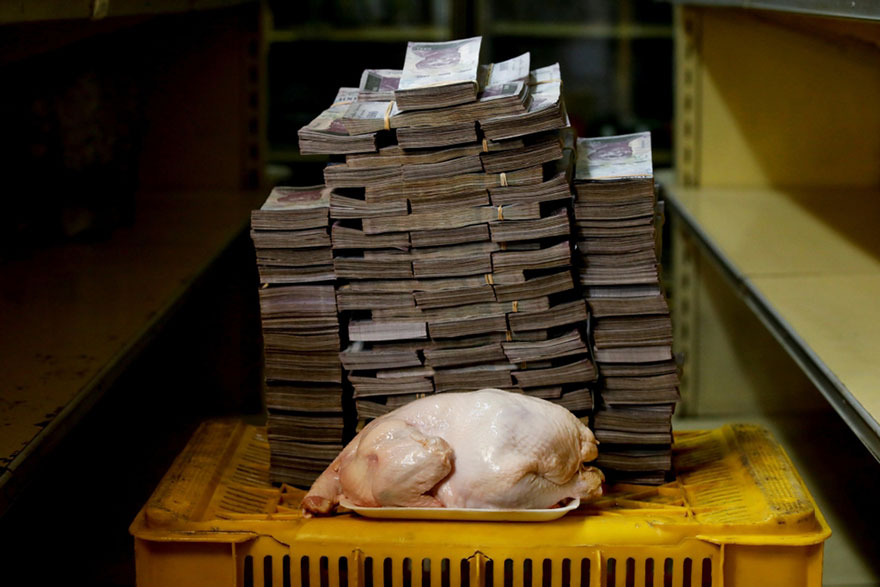
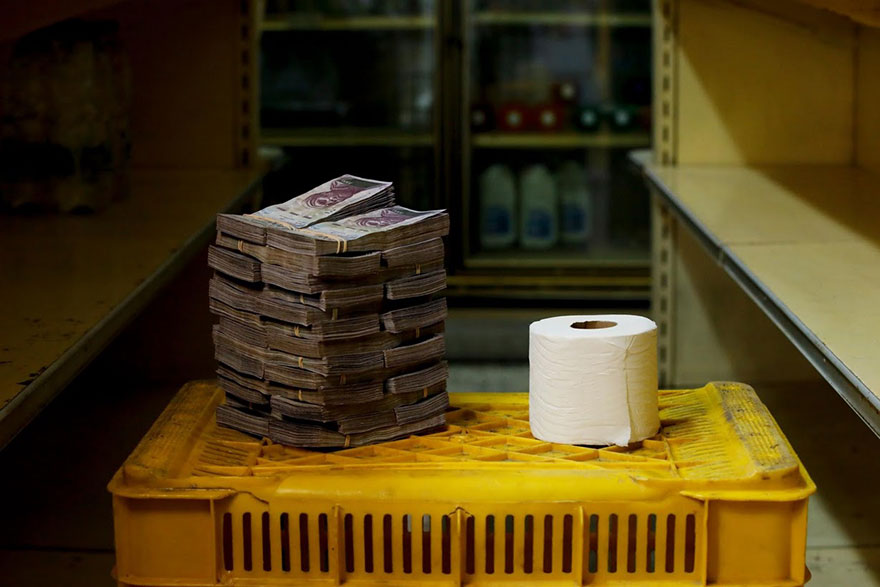
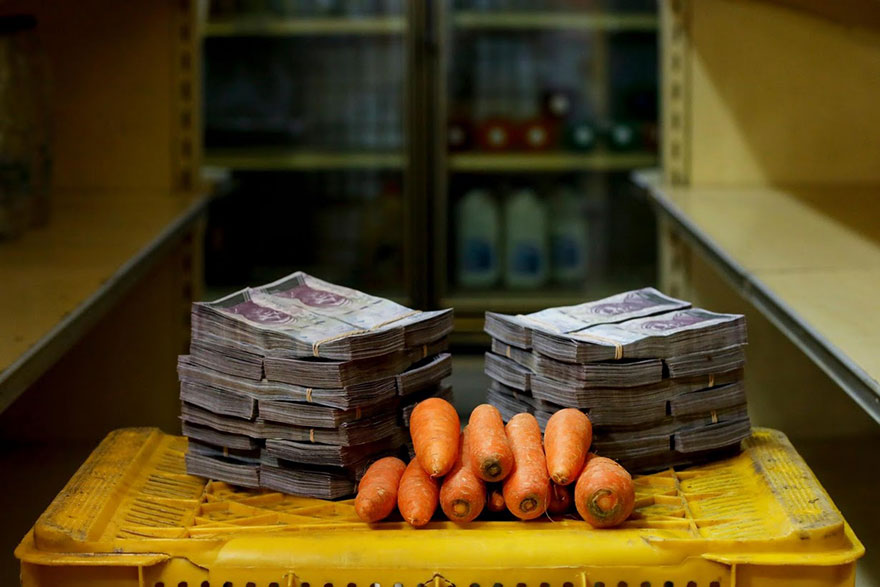
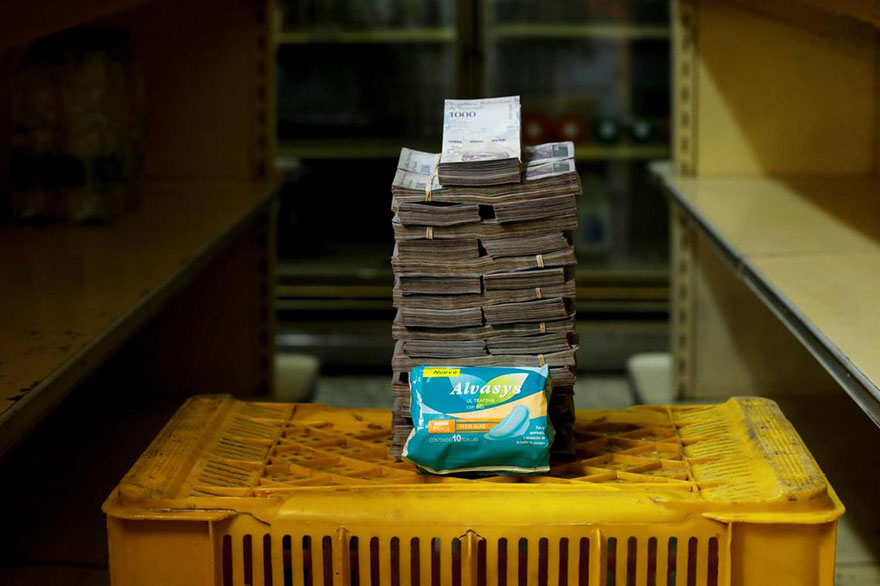
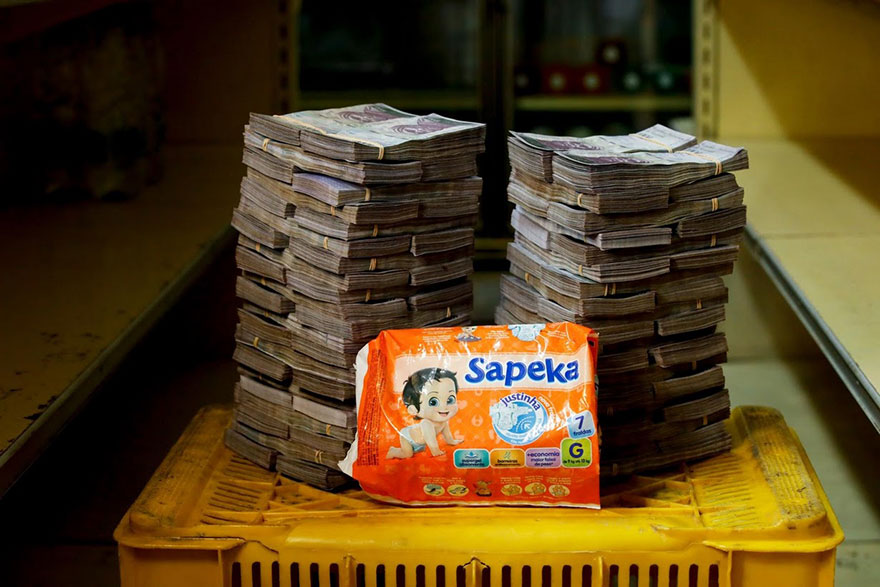

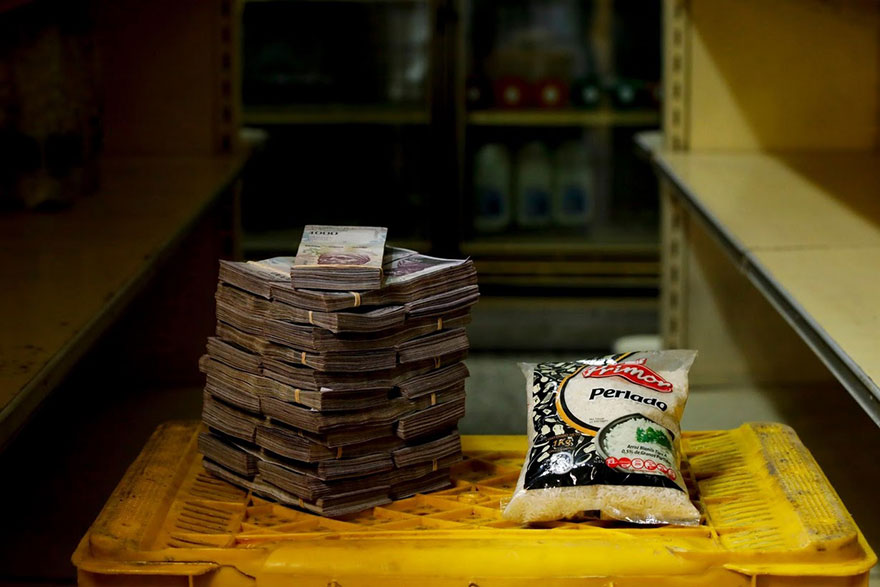
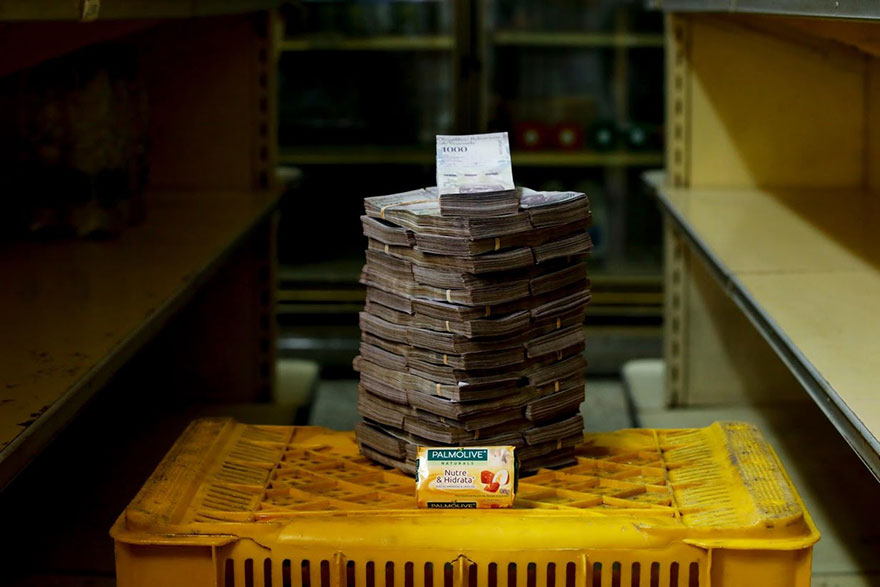
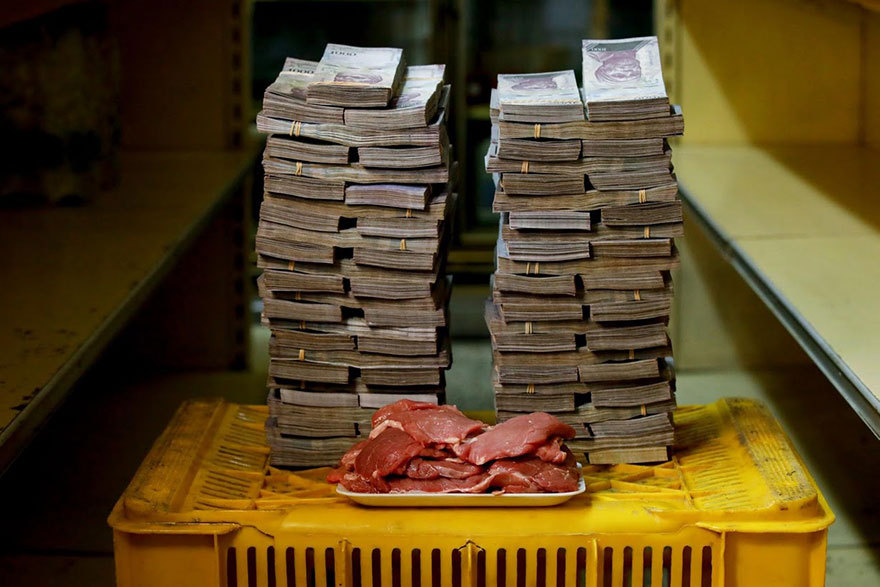
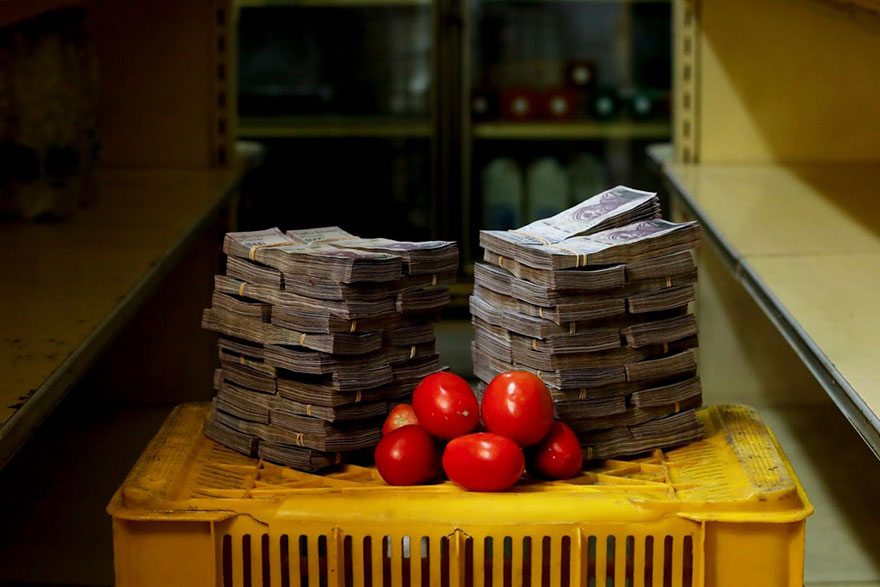
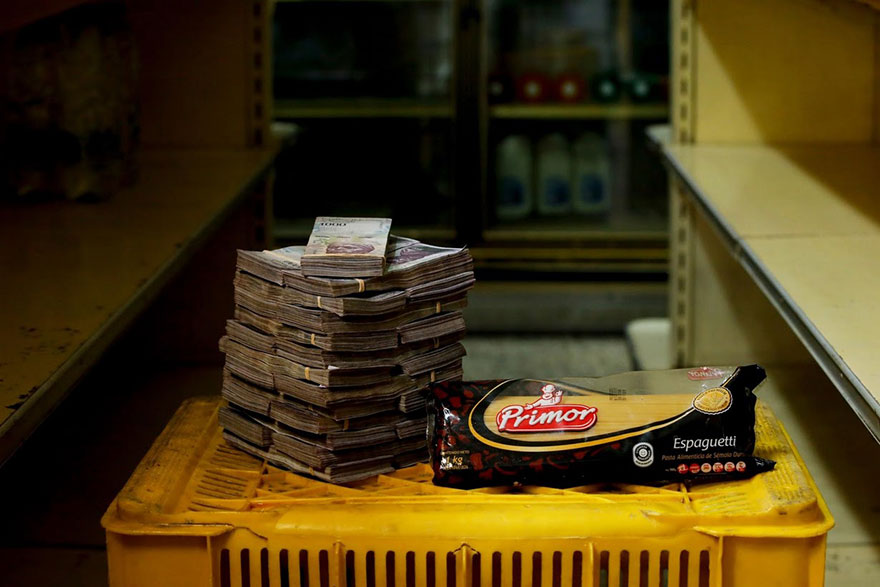
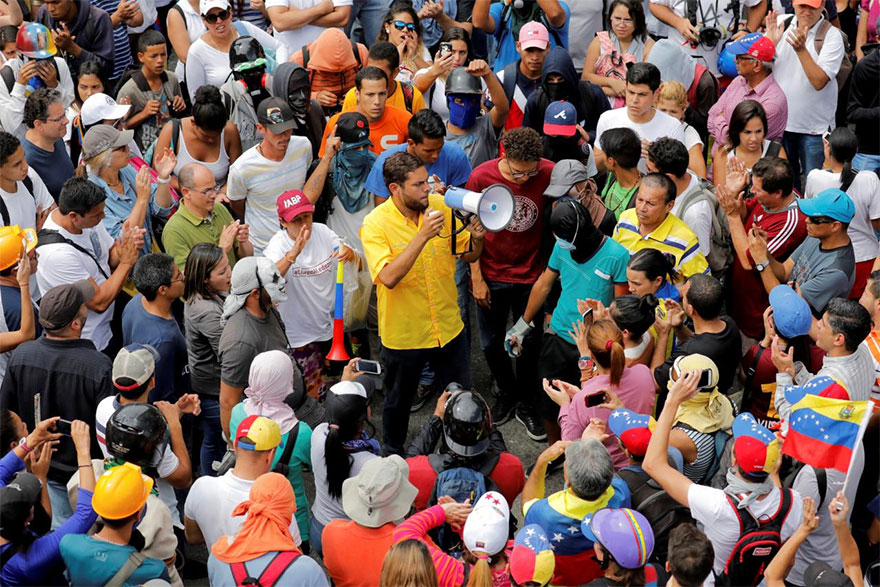



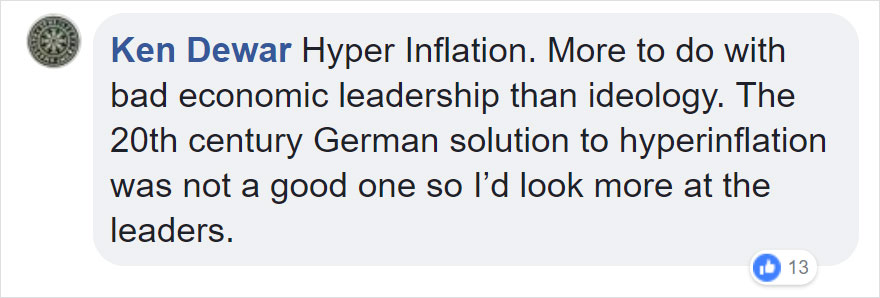
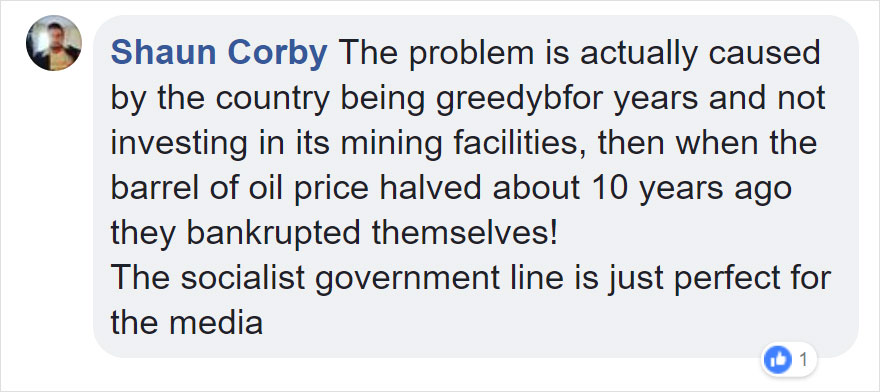


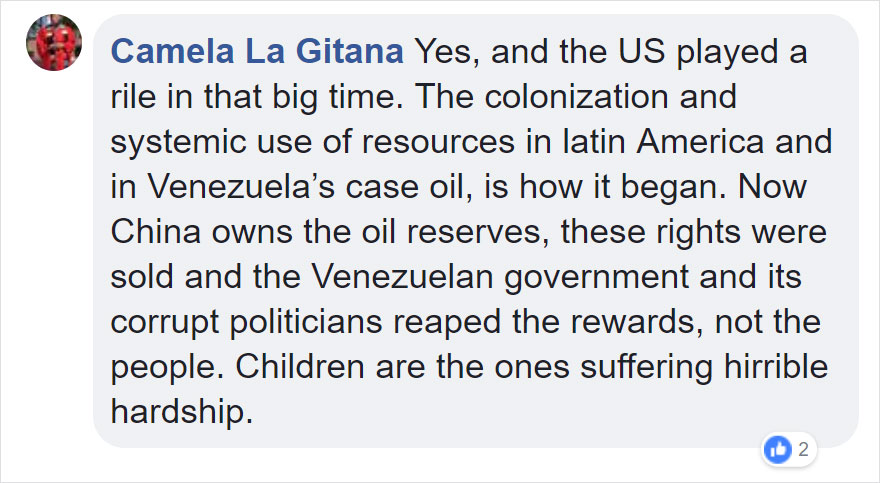



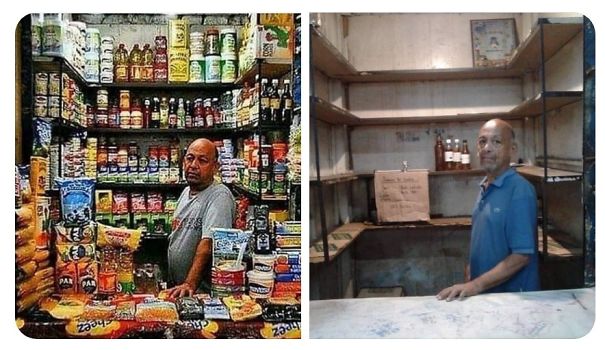
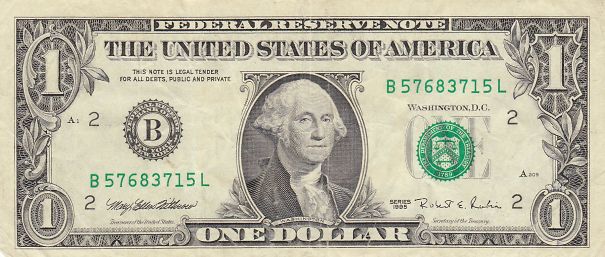









































161
81